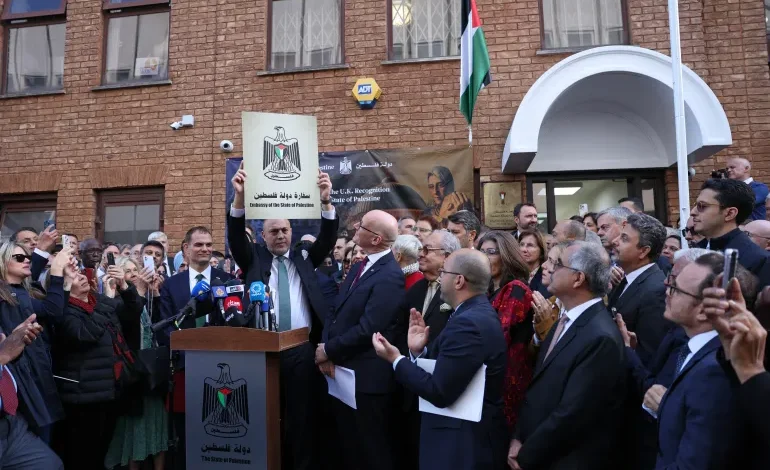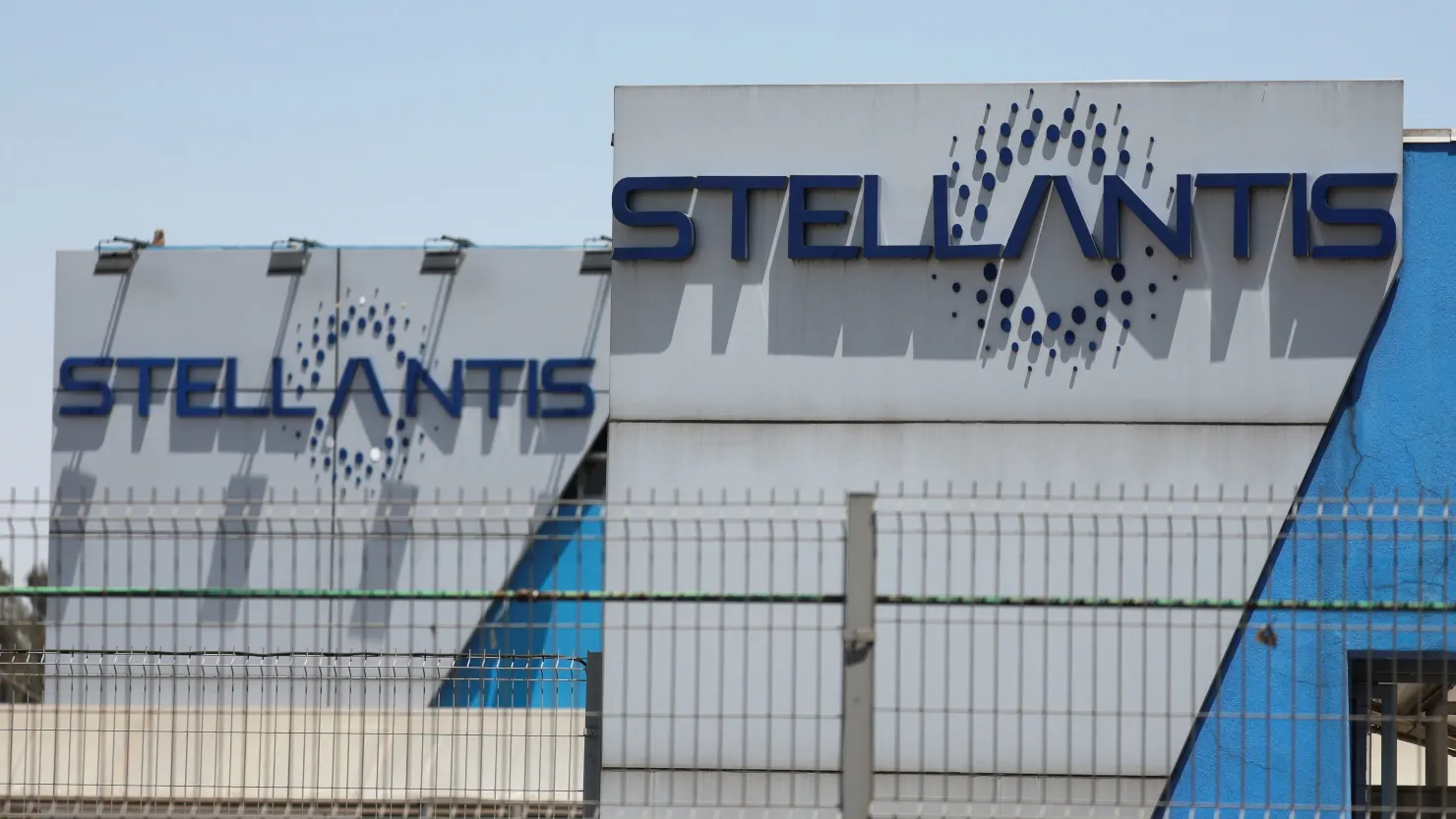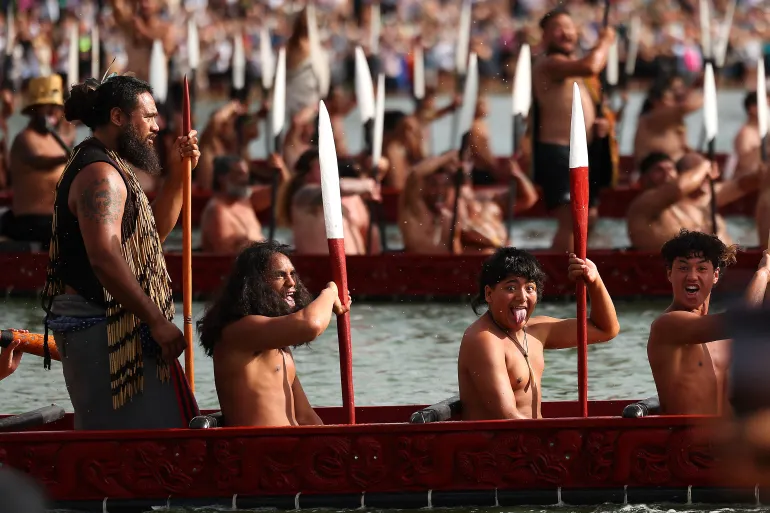‘Graves in the Courtyard’: Gaza City Under Siege as Hospital Grounds Turn into Burial Sites

In the middle of Gaza City’s chaos, a hospital courtyard has become a cemetery. With mortuaries overwhelmed, families are carving out small squares of earth between ambulance bays and mangled stretchers to bury their dead as Israel’s offensive tightens around the city.
Satellite images taken September 18 show Israeli armor pressing in from several directions — vehicles entering the al-Karama area in the northwest and massing to the northeast — effectively encircling Gaza City as explosive-laden vehicles and airstrikes level entire blocks. Residents describe quadcopters overhead, tanks on main arteries, and artillery forcing yet another wave of southbound flight on foot.
“Today, we’re living in a famine. People are in misery,” said Adeeb Abu Khalid, who fled Gaza City and was walking through a crowded Deir el-Balah market.
Nearby, others queued for water in the Daraj neighborhood hours after strikes there. Medical sources said at least two health workers were wounded and the city’s main medical center destroyed.
A flurry of Western recognitions of Palestinian statehood — from the UK and Canada to France, Belgium, Portugal, Australia, Luxembourg, Malta, Andorra, and Monaco — has been greeted in Gaza and the occupied West Bank with a mix of relief and disbelief. For many here, the war mutes the symbolism.
“These recognitions strengthen Palestinian legitimacy,” said medic Saeed Abu Elaish of Jabaliya, who lost more than two dozen relatives.
But for Huda Masawabi, inching south with thousands of displaced people, the declarations felt “worthless.”
“We just hope someone treats us as human beings,” she said.
Beyond the applause in New York, Israel has moved in the opposite direction on the ground. The government again closed the Allenby (King Hussein) Bridge crossing to Jordan “until further notice,” choking a lifeline for people and goods. Far-right ministers called for annexation of West Bank land in response to the recognitions; Prime Minister Benjamin Netanyahu vowed a Palestinian state “will not happen.”
Gaza City’s medical network is unraveling. Palestinian medical groups said Israeli forces destroyed the main health center in the city and besieged another facility in Tal al-Hawa; clinics in Shati camp were also struck. Health officials said dozens of hospitals across the Strip have been attacked since last October, with more than 1,700 healthcare workers killed. Fuel is nearly gone; administrators warned some hospitals could go dark within 48 hours without petrol.
Amid this, the hospital courtyard burials are a grim measure of collapse: morgues overfull, graveyards unreachable, residents carrying bodies wrapped in blankets past triage tents.
Israeli units have used shelling and drones to push civilians toward central and southern Gaza, residents and local reporters said. People described walking for hours under sun and bombardment with no food or shelter. In Khan Younis, three people were shot and killed, even as thousands who fled Gaza City have been funneled there. Video verified by journalists showed an Israeli tank on al-Nasr Street, about a kilometer from al-Shifa Hospital, its turret tracking a camera as gunfire cracked.
The daily toll keeps climbing. Gaza’s Health Ministry reported dozens killed since dawn, including many in Gaza City, and hundreds wounded. Aid agencies and the UN say famine conditions persist, especially in the north; UNRWA called the starvation “man-made,” driven by the months-long siege and restrictions on relief, fuel, and medical supplies.
At the UN General Assembly, condemnations stacked up: the UN secretary-general demanded an immediate ceasefire, the release of captives, and full humanitarian access. Brazil’s President Lula called the war one of humanity’s darkest chapters. Turkey’s President Erdogan decried attacks on journalists and the sealing of Gaza’s borders. Indonesia’s President Prabowo offered 20,000 peacekeepers and drew a line from Indonesia’s colonial history to Gaza’s present. Qatar’s emir labeled Israel a “rogue” state after a strike in Doha that targeted a Hamas negotiating team, calling it a political assassination that sabotages diplomacy.
President Trump said the war “must stop immediately,” while also calling recent recognitions of Palestinian statehood a “reward” for Hamas. Hamas, for its part, blamed Netanyahu for obstructing a deal and urged Washington to “intervene positively.” On the ground, the fighting didn’t pause: the Qassam Brigades claimed an anti-armor strike against an Israeli Merkava in Tal al-Hawa; elsewhere in the West Bank, settlers and troops carried out raids, and a young Palestinian was killed near Ramallah.
For people caught between encirclement and evacuation orders, geopolitical milestones feel abstract. “What matters to us is that the war stops,” Abu Khalid said. In a city where a hospital yard doubles as a graveyard, recognition papers thousands of miles away don’t feed children, power an ICU, or keep a tank from a neighborhood street.
Until the shelling stops and aid flows freely, Gaza’s map will be drawn not by lines on a diplomatic communique — but by the footpaths of those still walking south, and the fresh mounds of earth between the ambulances.
NPR, Al Jazeera, the New York Times, and BBC contributed to this report.









The latest news in your social feeds
Subscribe to our social media platforms to stay tuned